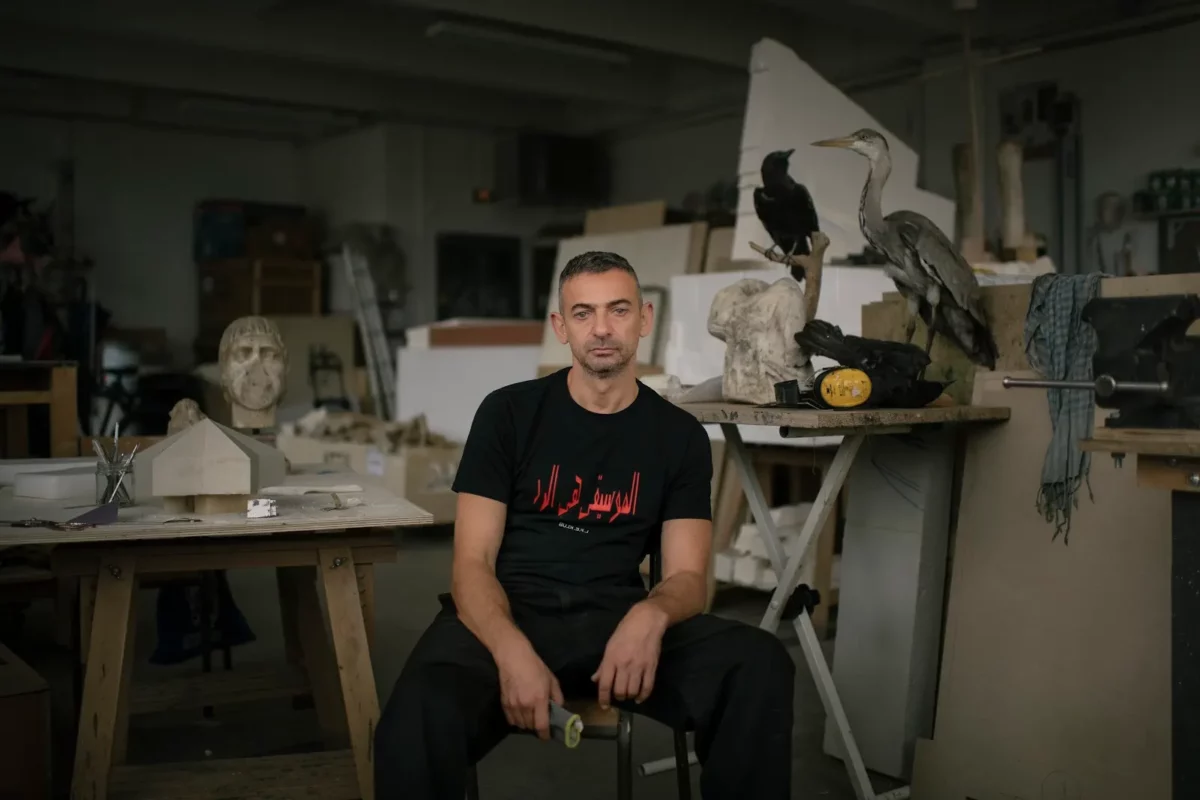Ali Cherri

Ali Cherri’s work is inspired by artefacts and the natural world. His sculptures, drawings and installations explore the temporal shifts between ancient worlds and contemporary societies. Using archaeological artefacts as a starting point, he investigates the boundaries of ideologies that underpin the foundations of nations and the myth of national progression. His work explores the links between archaeology, historical narrative and heritage, considering the processes of excavation and relocation of cultural objects into museums.
Recent solo exhibitions include Les Veilleurs ([mac] Musée d’art contemporain de Marseille, 2025) ; How I am Monument (Baltic Art Center, 2025 ; Vienna Secession, 2024) ; Twenty-Four Ghosts per Second (Bourse de Commerce – Pinault Collection, 2025), ENVISAGEMENT (Giacometti Institute, 2024), Dreamless Night (Frac Bretagne, 2024 ; GAMeC, 2023), Humble and quiet and soothing as mud (Swiss Institute, 2023), Ceux qui nous regardent (CAC La Traverse, 2023), If you prick us, do we not bleed? (National Gallery, 2022), Return of the Beast (Imane Farès, 2021), Tales from the Riverbed (Clark House, 2018), From Fragment to Whole (Jönköping County Museum, 2018), Satellite 10: Somniculus Programme (CAPC Centre d’art contemporain de Bordeaux and Jeu de Paume, 2017), A Taxonomy of Fallacies: The Life of Dead Objects (Sursock Museum, 2016).
Monographic exhibition is also upcoming at the WIELS in Fall 2026.
His work has recently been exhibited at the Institut Valencià d’Art Modern (Valencia), Jameel Arts Center (Dubai), Para Site (Hong Kong), MAXXI (Rome), Centre Pompidou (Paris), the 22nd VideoBrasil (2024) the 13th and 15th Sharjah Biennial (2017, 2023), the 5th Kochi-Muziris Biennale (India, 2022), the Venice Biennial (2022), Manifesta 13 (Marseille, 2020), the 5th Ural Industrial Biennial of Contemporary Art (Ekaterinburg, 2019), and the 8th Melle International Biennial of Contemporary Art (Melle, 2018).
He received the Robert E. Fulton Fellowship from Harvard University (2016), the Rockefeller Foundation Prize (2017), and was nominated for the Abraaj Group Art Prize (2018). In 2022, he received the Silver Lion for his participation in the Venice Biennale International Art Exhibition, The Milk of Dreams.
His works are part of many major collections, including MoMA: Museum of Modern Art (New York); Collection Pinault (Paris); British Museum (London); Art Jameel (Dubai), Centre Pompidou (Paris); MACBA (Barcelona); Solomon R. Guggenheim Museum (New York; Mathaf (Doha); SeMA: Seoul Museum of Art (Seoul); [mac] Musée d’art contemporain de Marseille (Marseille); Musée Bonnefanten (Maastricht)…